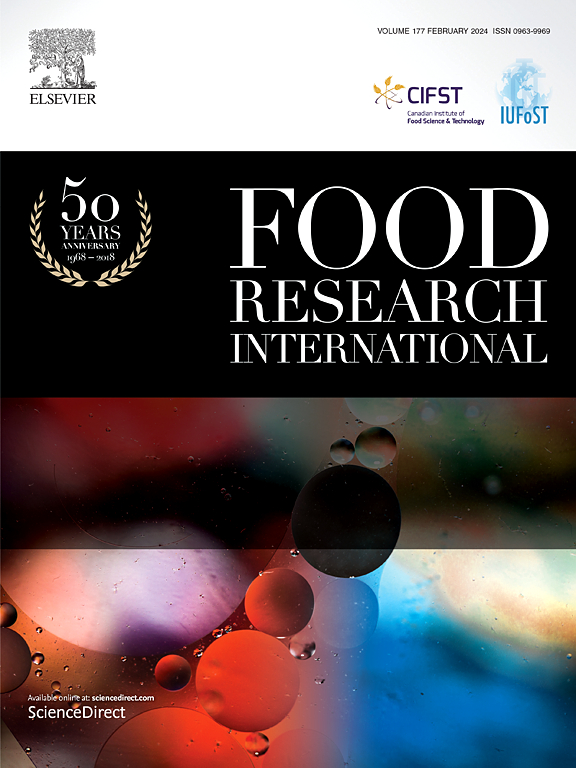New insights into the role of cellular states, cell-secreted metabolites, and essential nutrients in biofilm formation and menaquinone-7 biosynthesis in Bacillus subtilis natto
IF 7
1区 农林科学
Q1 FOOD SCIENCE & TECHNOLOGY
引用次数: 0
Abstract
Menaquinone-7 (MK-7), known for its health benefits, is in high demand across the health and medical fields. Two-stage fermentation strategy can efficiently enhance MK-7 production by Bacillus subtilis natto (B. subtilis natto). However, B. subtilis natto at different growth phases exhibited significant differences in biofilm formation and MK-7 production during the two-stage fermentation, hindering the efficient and stable synthesis of MK-7. Specifically, 0.72 and 0.25 of biofilm biomass values for cells at the early exponential and stationary phases yield MK-7 concentrations of 55.90 and 12.67 mg/L, respectively, with significant variations in the expression levels of quorum sensing, MK-7 synthesis, and biofilm-related genes detected by RT-qPCR. Subsequently, based on experimental procedures involving fermentation supernatant intervention, nutrient supply, and medium renewal, it was found that the deficiency of essential nutrients, particularly low-molecular-weight (< 1 kDa) fractions of soy protein hydrolysate (SPH), was identified as the primary factor of these differences. Additionally, the influence of cell-secreted metabolites, including the downregulation of surfactin and bacilysin expression by 0.61-fold and 0.33-fold, respectively, further exacerbated these effects. Moreover, the increased proportion of depolarized cells and spores, along with reduced intracellular potassium levels in stationary phase cells, was a secondary effect resulting from the two primary causes. Supplementing with ultrafiltration and 75 % ethanol-precipitated fractions of SPH could restore the MK-7 production by 2.35 and 2.05-fold, and biofilm biomass by 2.43 and 2.11-fold, respectively, in B. subtilis natto at the stationary phase. These findings offer a new perspective on the factors influencing biofilm formation and MK-7 production in B. subtilis natto.

求助全文
约1分钟内获得全文
求助全文
来源期刊

Food Research International
工程技术-食品科技
CiteScore
12.50
自引率
7.40%
发文量
1183
审稿时长
79 days
期刊介绍:
Food Research International serves as a rapid dissemination platform for significant and impactful research in food science, technology, engineering, and nutrition. The journal focuses on publishing novel, high-quality, and high-impact review papers, original research papers, and letters to the editors across various disciplines in the science and technology of food. Additionally, it follows a policy of publishing special issues on topical and emergent subjects in food research or related areas. Selected, peer-reviewed papers from scientific meetings, workshops, and conferences on the science, technology, and engineering of foods are also featured in special issues.
 求助内容:
求助内容: 应助结果提醒方式:
应助结果提醒方式:


